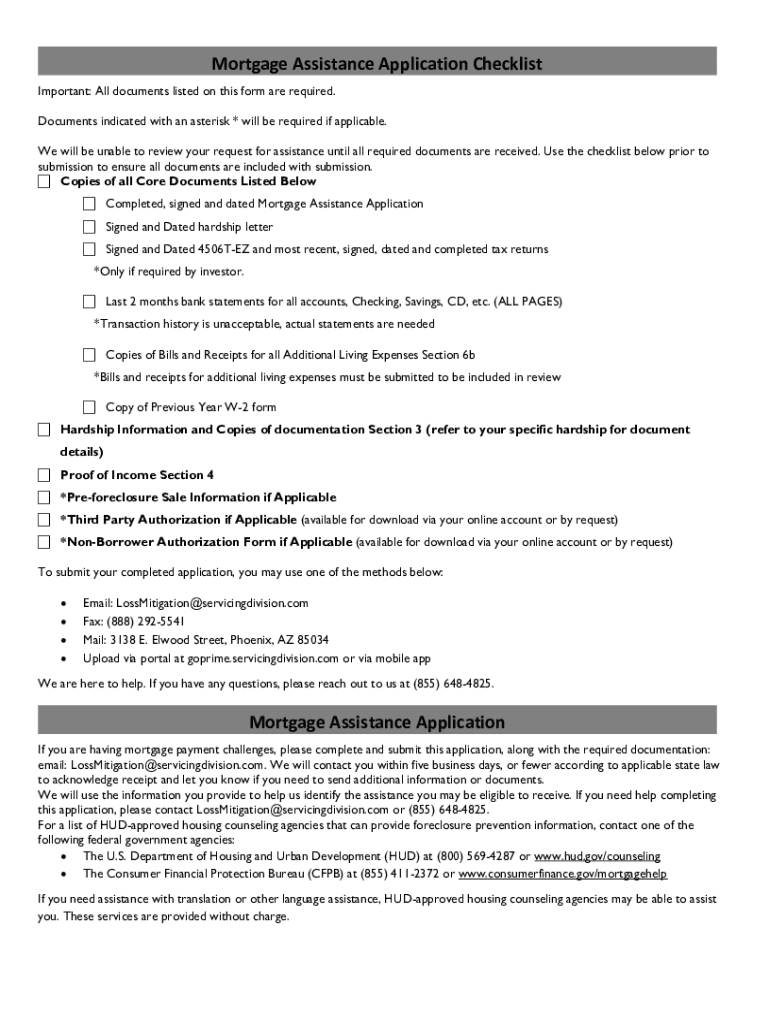Essential Mortgage Application Paperwork Checklist

Applying for a mortgage can often feel like a daunting task, with its complex processes and mountain of paperwork. However, with proper preparation, you can streamline the process, make it less stressful, and possibly even secure a better mortgage deal. Here, we'll guide you through the essential mortgage application paperwork checklist to ensure you're well-prepared for your mortgage application.
Financial Documentation

When you apply for a mortgage, lenders will require a detailed look at your financial health to assess your ability to repay the loan. Here’s what you’ll need:
- Recent Pay Stubs: Usually the last two months to show consistent income.
- Tax Returns: The last two years’ personal and business tax returns if self-employed.
- W-2 Forms: Also for the past two years.
- Bank Statements: At least the last two to three months to verify your savings, investments, and spending habits.
- Investment and Retirement Accounts: Statements reflecting any assets that might help with loan qualifications.
Employment Verification

Lenders want to ensure your employment is stable and that your income is reliable. Here’s the documentation you’ll need:
- Employment Verification Letter: A letter from your employer on company letterhead, stating your position, salary, and employment duration.
- Job Offer or Contract: If you’re changing jobs or recently started a new position, a signed offer letter or contract can be helpful.
📝 Note: Ensure that the documents you provide are up-to-date and signed where necessary.
Credit Information

Your credit history plays a pivotal role in mortgage approval:
- Credit Report: Although lenders will pull your credit report, having your own to review can be beneficial.
- Explanation Letter for Inquiries: If there are any credit inquiries, providing a letter explaining these might mitigate potential concerns.
Property Documentation

If you’ve already selected a property, here’s what you need:
- Purchase Agreement: A signed contract between you and the seller detailing the property’s terms and conditions.
- Home Inspection Report: While not always necessary for the mortgage application, it’s prudent to know the condition of the property.
🏠 Note: Home inspections can sometimes influence your decision to proceed with a purchase or renegotiate terms.
Additional Documents

These documents can vary based on your circumstances:
- Proof of Insurance: Lenders will require proof that the property is insured.
- Divorce Decree: If applicable, detailing asset division and financial support.
- Bankruptcy or Foreclosure Documentation: If your financial past includes these events, full disclosure is necessary.
- Gift Letters: If you’re receiving funds from family or friends for your down payment, this needs to be formally documented.
🎁 Note: Gift letters must specify that the gift is not a loan and will not be repaid.
Organizing Your Paperwork

With all these documents, here’s how to stay organized:
| Category | Documents | Where to Find Them |
|---|---|---|
| Financial | Pay Stubs, Tax Returns, W-2s | Employer, Tax Advisor |
| Employment | Verification Letter, Job Offer | HR Department |
| Credit | Credit Report | Credit Bureaus |
| Property | Purchase Agreement | Real Estate Agent |

In conclusion, preparing for a mortgage application involves gathering and organizing a variety of documents. This process ensures that your application is not only complete but also presents you in the best financial light possible. Remember, the more prepared you are, the smoother the loan approval process will be. Review your documents, ensure they're up-to-date, and be ready to answer any questions lenders might have about your financial situation.
Why do lenders require so many documents?

+
Lenders need to verify your financial stability, employment, and creditworthiness to minimize their risk. The documents provide evidence of your ability to repay the loan.
How long will it take to gather all the mortgage paperwork?

+
The time can vary, but generally, it might take a few days to a couple of weeks. It’s advisable to start the process early to avoid delays.
Can I apply for a mortgage without a job?

+
It’s challenging, but some lenders might consider alternative income sources like alimony, pensions, or investments. A large down payment could also help.
What if I find errors in my credit report?

+
You should dispute any errors with the credit bureau. This can take some time, so start this process as soon as possible before applying for your mortgage.